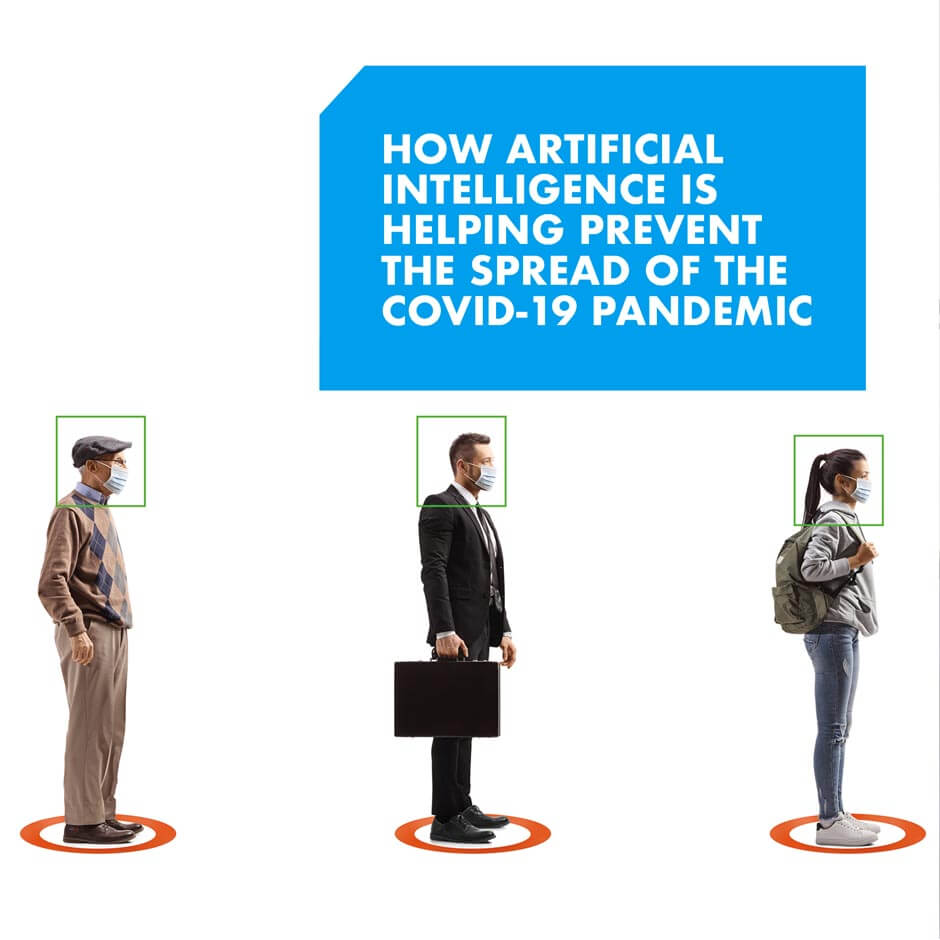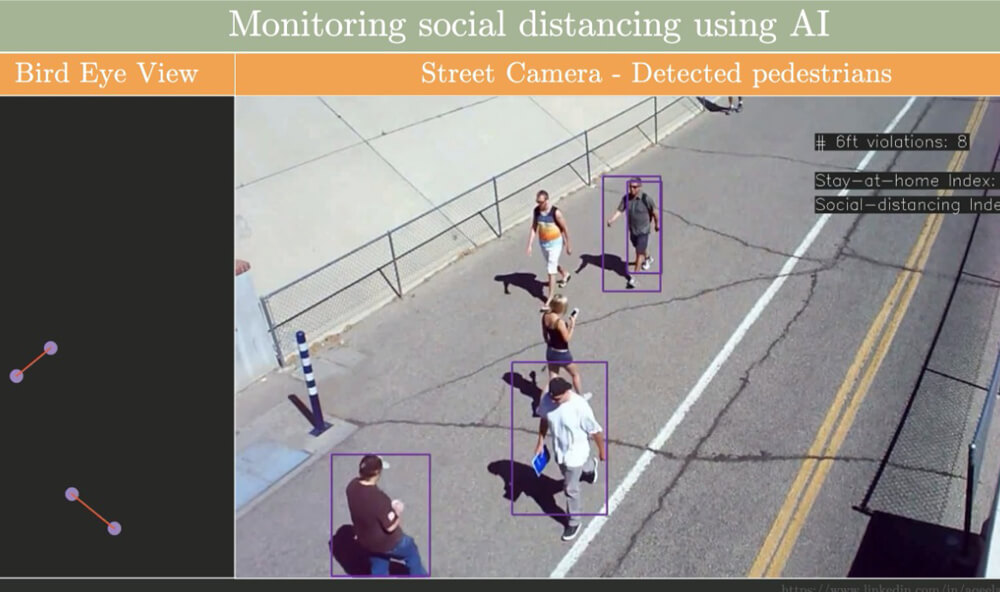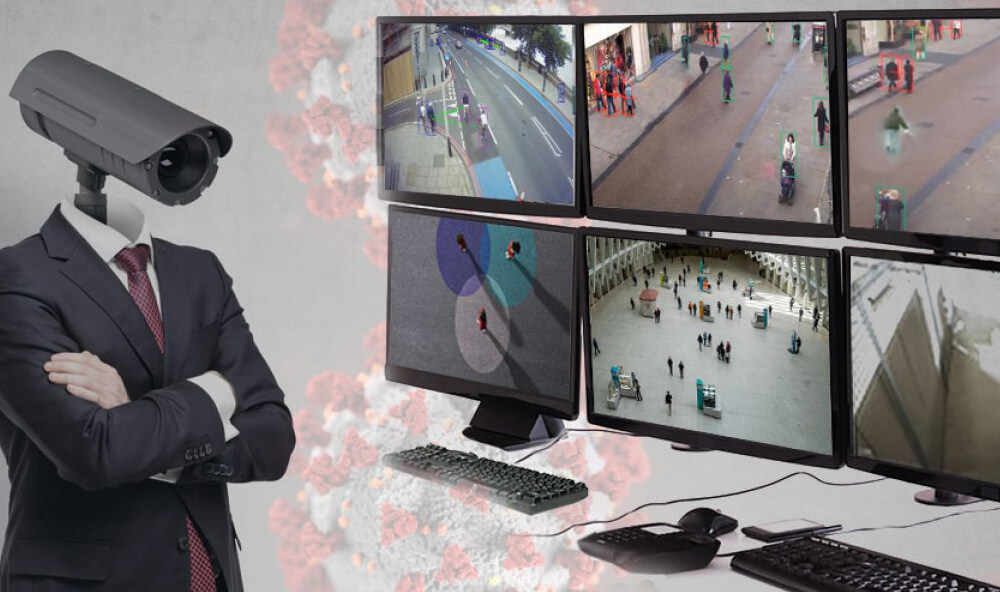
How Artificial Intelligence Is Helping Prevent the Spread of the COVID-19 Pandemic
One year since the first Covid 19 patient was found in China, the outbreak has not yet been resolved. This virus has infected more than 73 million people with the death of more than 1.6 million people.
Medical experts state that transmission of the Covid 19 virus can be prevented by maintaining distance, washing hands regularly, and wearing a mask. However, not everyone adheres to these health protocols.
Head of Automation, Intelligent Systems, and Robotics Department at Infiniti Group, Fuad Widatmoko said artificial intelligence could have a role in overseeing the implementation of health protocols to prevent Covid 19 transmission. “You can do this by using deep learning and computer vision functions,” he said when he became a speaker at the Engineers Talk event entitled “In Response to Covid 19 Through Computer Vision and Deep Learning” organized by the Master of Mechanical Engineering, Swiss German University.
Fuad, who currently a Master of Mechanical Engineering (MME) student, said that Artificial Intelligence has a branch of Computer Vision that can analyze digital images or videos. This computer vision function is increasingly developing with the existence of a deep learning function that can analyze problems just like a human brain.
He said, there are at least four functions of Computer Vision and Deep Learning that can be used to tackle Covid 19. The four functions are:

- Mask Detector
As is known, the use of masks has a very influential on the transmission of Covid 19, especially in crowded places. Artificial intelligence can detect if someone is not wearing a mask in a certain place.
To program this artificial intelligence, Fuad collected each of 600 samples of people wearing masks and not wearing masks. “After that, we teach the system by giving instructions, that this is an image that uses a mask, this is one that does not use a mask,” he said.

- Social Distancing Detector
This system is very useful for detecting the distance between people in crowded places, especially in queues. If there is a distance in the queue that is less than 1.5 meters, the system will give a warning.
“The system is also taught to detect only human objects, not objects or other living things such as animals. This can be used in public service offices such as banks, ”said Fuad.

- Room Density Detector
This system functions to control the density of people in a room. Beforehand, we must determine in advance the ideal number of people density in one room. If the limit has been exceeded, the system will give a warning. Room Density Detector can be applied in various places such as shopping centers.

- X-ray Classification
This system can help doctors detect patients suffering from Covid 19 based on X-rays of their lungs. “The system can tell based on the x-ray results of the lungs, whether it is normal or not, as well as tell the percent confidence level,” said Fuad.
In China, the use of AI is combined with drones and robots. They deploy drones and robots to pay attention to how people behave, whether they are obeying physical distancing.
Utilization of this technology has been used in shopping centers and offices. Someone just comes close and a system equipped with a thermal camera will detect whether the person being examined is wearing a mask and has a high or normal temperature. The data of the people who are taken will enter the mapping.
“More sophisticatedly, AI has monitored people’s movements, so that technology can see who has or has not been identified, whether this person has tested Covid-19, what is their body temperature, and whether they are wearing masks or not. These data will be included in the big data for Covid-19, ”said Ivan Sie, Internet of Things (IoT) consultant, as quoted by Republika.
About SGU
SWISS GERMAN UNIVERSITY (SGU) is an international university in Indonesia, was established in 2000 as a joint effort between Indonesia, Germany, Switzerland, and Austria. We are the pioneer in offering international curricula in Indonesia.
Qualified students can graduate with a Double Degree from Indonesia and Germany, which SGU provides in cooperation with partner universities; surely a valuable tool for your future careers. Ever since its establishment, SGU has been dedicated to delivering quality education in line with international standards and aims to develop skilled professionals who meet the demands of the industry. To achieve its objectives, SGU offers quality-oriented learning through 12 Bachelor’s Degree Programs and 4 Master’s Degree Programs ranging from Engineering, Information Technology, and Business to Life Sciences and Social Sciences. Furthermore, with small class sizes, and with English as the medium of instruction, you can look forward to pursuing your tertiary education and degree with full confidence.***
Back